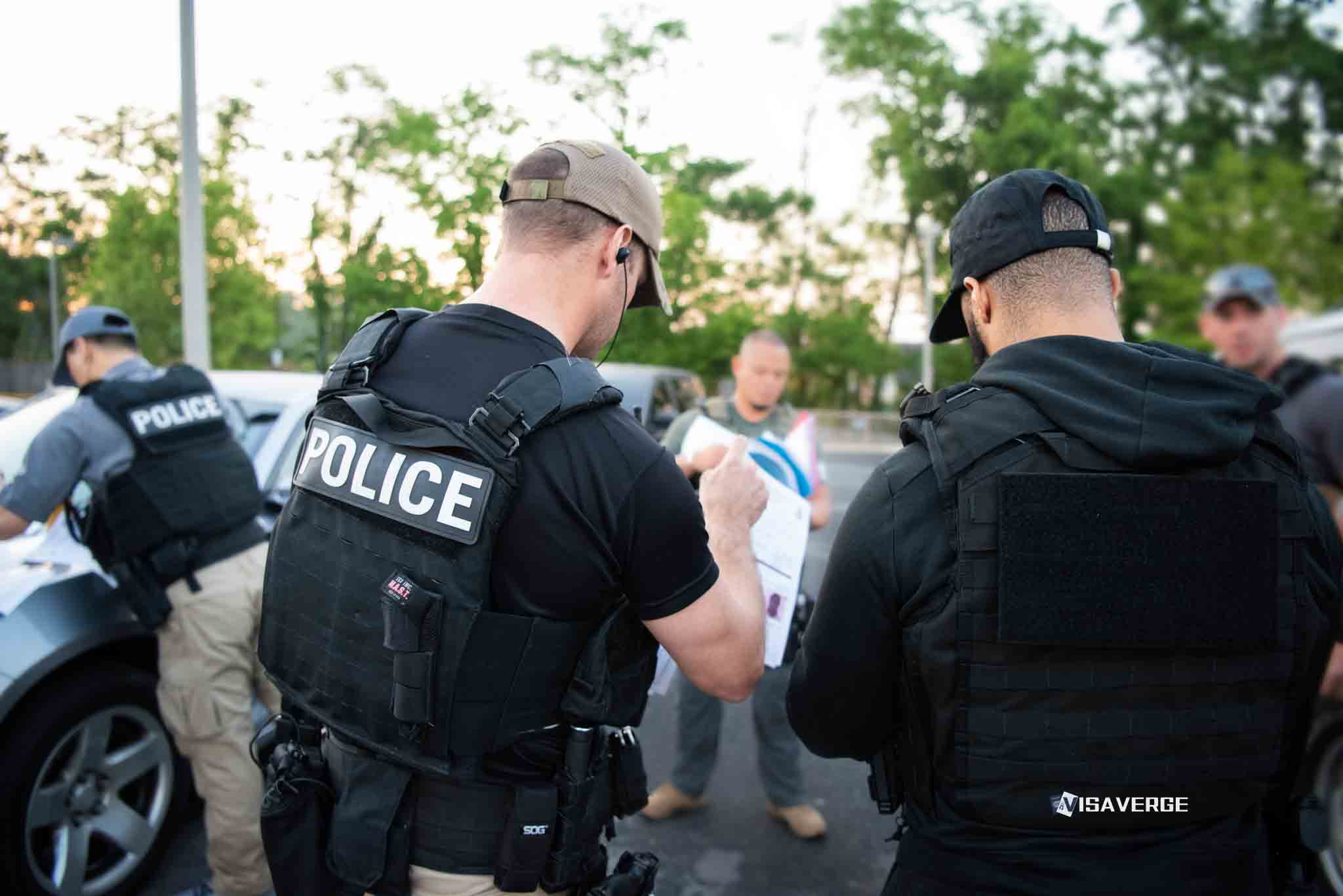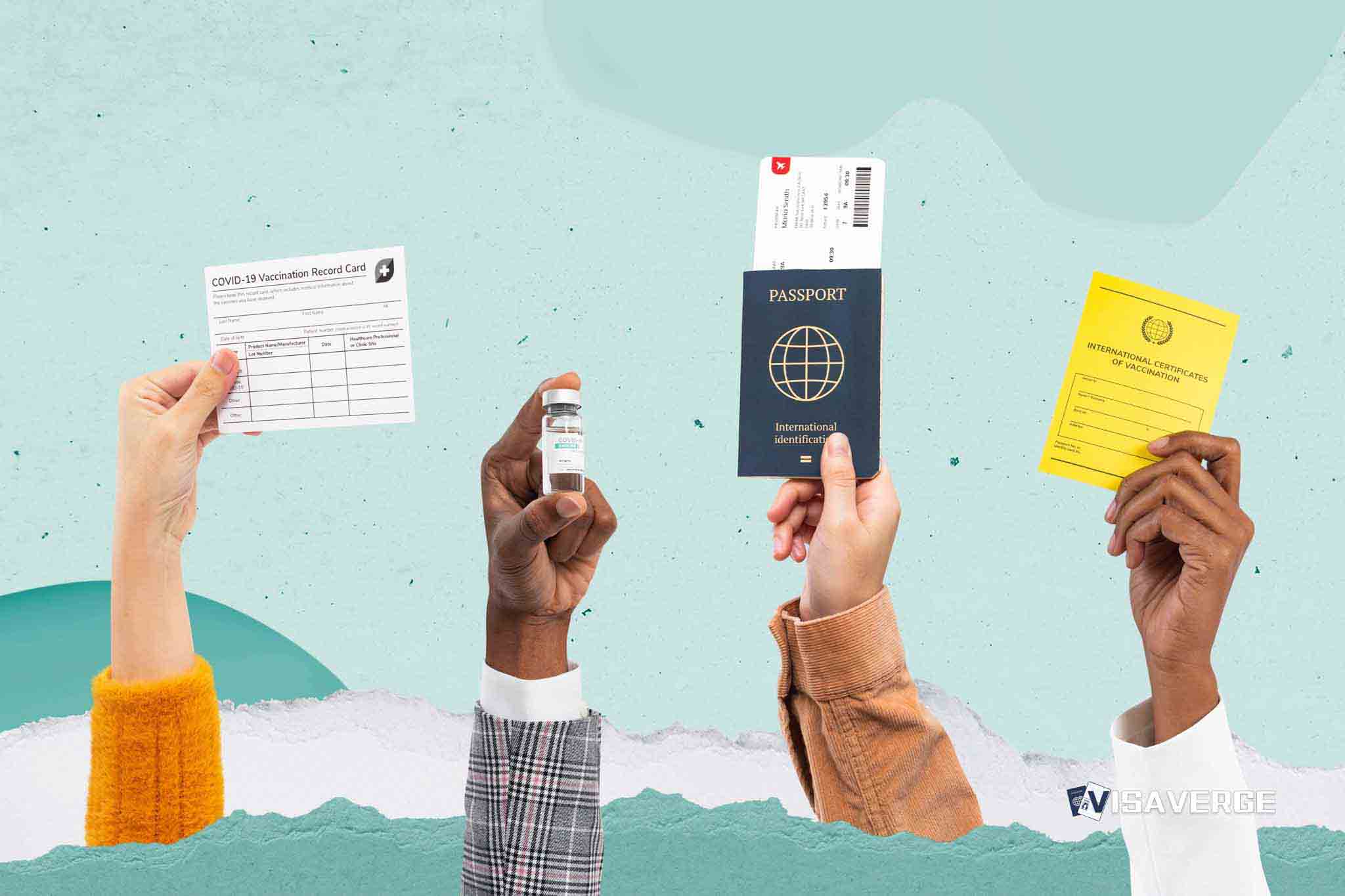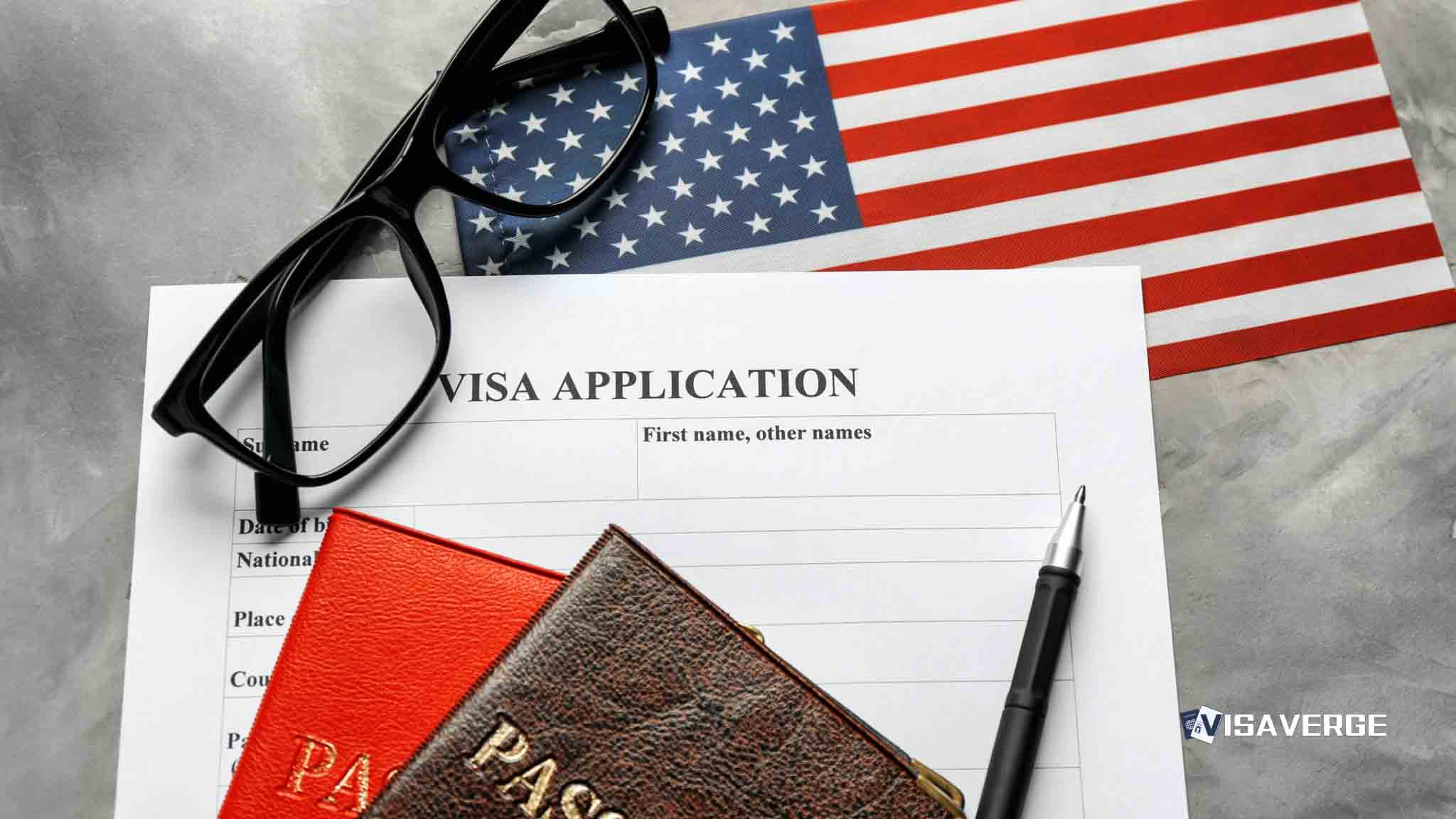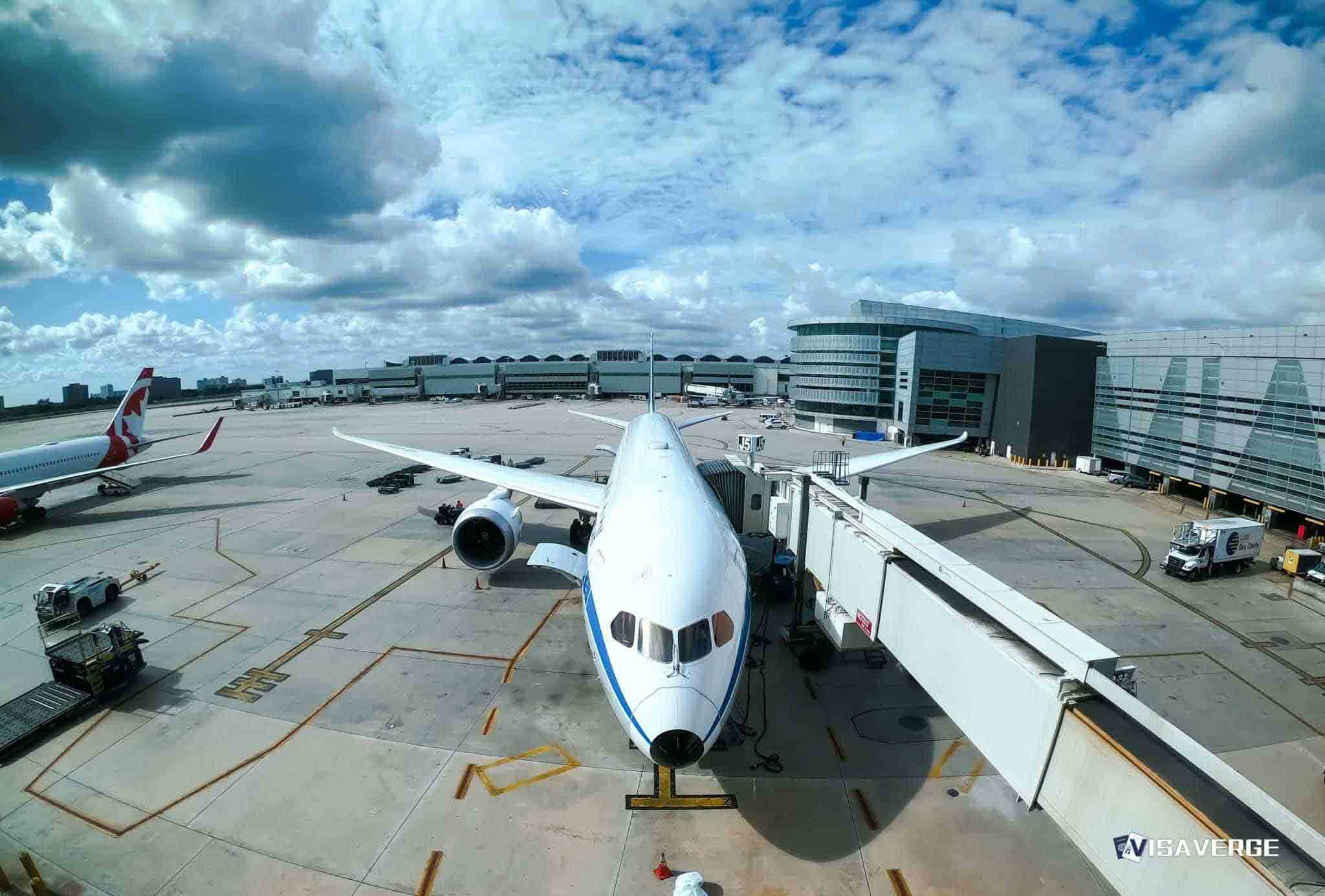(ACCRA, GHANA) At least six West Africans who were removed from the United States as part of a US immigration crackdown were flown to Accra and then sent onward from Ghana to Togo, despite ongoing court fights tied to their cases, according to reports published on September 23, 2025. The chain of removals in September 2025 underscores how fast deportation decisions can move across borders even when legal challenges are still open, and it spotlights hard questions about the duties of each country involved.
Ghanaian authorities did not allow the group to remain in the country after they arrived on a U.S. removal flight. Instead, officials arranged their deportation from Ghana to neighboring Togo. There were no further public details on the individuals’ identities, the exact legal steps they had taken in the United States or Ghana, or how Togolese authorities handled their arrival. The lack of specifics has left advocates and families trying to piece together what happened, and why a pending legal process did not pause the onward transfer.

Chain removals raise legal questions
The transfer from Ghana to Togo while legal challenges were still in play raises sharp questions about due process and the role of receiving states. When a person is expelled from one country and then moved again before their case is settled, it can reduce access to lawyers, records, and evidence. That loss of access may affect the person’s chance to be heard, even if their appeal or motion is still active.
The incident has also drawn attention to broader concerns about cross-border removals and how countries weigh their own security policies against the rights of people facing expulsion. International practice generally expects the receiving state to:
- Assess identity and travel documents
- Decide whether it will admit the person
- Consider whether the person poses risks or lacks ties
Critics say snap transfers—like the Ghana to Togo move—can make it harder for people to contact counsel or continue legal filings tied to the country that first carried out the removal. In this reported case, legal fights were still pending when Ghana sent the group on, suggesting the clock on court review had not yet run out.
Advocates note that such chain removals can scatter families, jobs, and records overnight. Examples of likely impacts include:
- A father working in a U.S. city being returned to West Africa, then moved across a border away from support networks
- A student losing access to school records and legal mail during a transfer
- Employers suddenly losing contact with workers expected to return
None of these specific effects were detailed in the reports, but they mirror what often happens when removals stack up quickly across multiple countries.
Chain removals can reduce access to counsel, fragment records, and complicate ongoing legal challenges — especially when movements occur faster than court reviews or communications.
Regional and U.S. policy context
The United States has stepped up immigration enforcement, including targeted flights returning people to West African countries. That broader US immigration crackdown formed the backdrop for the group’s initial removal to Ghana.
Ghana’s decision not to accept them and to send them on to Togo added a regional layer, turning a single removal into a cross-border transfer and raising the stakes for the people involved. According to analysis by VisaVerge.com, such cases show how deportation systems in different countries can interact in ways that move faster than courts.
Key dynamics noted by analysts:
- When one country sends a person out and the next country quickly moves them again, the person’s location can change before legal filings catch up.
- The problem is more acute when people lack phones, translation help, or steady contact with lawyers.
- Families and advocates often struggle to track people through multiple checkpoints, especially when official updates are sparse.
For U.S. readers trying to place this within federal processes, removal flights are run by U.S. Immigration and Customs Enforcement. Enforcement and Removal Operations (ERO) is the unit that carries out removals after a final order, or in some cases while appeals or motions are pending, subject to stays and other limits. The agency outlines its role and procedures on the official ICE Enforcement and Removal Operations page. That page explains how the U.S. side works, but it does not control what another country does after a plane lands.
Reported facts from the September 2025 case
- At least six West Africans were removed from the United States to Ghana.
- Ghanaian authorities then deported them from Ghana to Togo.
- This second transfer took place despite ongoing legal fights tied to their removal.
- Reports were published on September 23, 2025.
- No details were provided on the people’s identities, the nature of their legal filings, or the response from Togolese authorities.
The speed and opacity of this sequence are what worry many observers. Without clear information about the status of legal filings at each step, it is hard for lawyers to advise clients or for families to plan. It also limits public scrutiny of chain removals that cut across borders. In practice, even when a court allows a case to continue, the person may already have moved to a new country, creating fresh hurdles for communication and proof gathering.
Humanitarian and practical concerns
Ghana’s decision to send the people on to Togo raises practical and humanitarian questions for the wider region. West African borders see daily movement for trade, schooling, and family ties. When removals occur from Ghana to Togo (or vice versa), people can end up far from community support and face challenges such as:
- Language or documentation barriers in the new location
- Lack of clear reception plans for housing, food, or medical care
- Difficulty re-establishing legal representation and continuing filings
Practical steps recommended for U.S.-based families and advocates:
- Keep copies of legal papers, identification, and contact details in multiple places.
- Maintain digital backups of important documents.
- Share records with trusted lawyers and community groups that can act if a person is moved.
These measures can help lawyers re-establish contact and continue filings if someone is moved quickly across borders.
Diplomatic and legal implications
Diplomatically, chain removals test cooperation between countries that must balance public safety with human rights protections. The September 2025 case comes at a time when governments are under pressure to manage borders and return people with removal orders, while courts still have the final say on legal issues.
That mix can produce gray areas, especially if one country’s removal is followed by a second country’s deportation before judges finish reviewing the case. The Ghana to Togo transfer highlights how removal systems can ripple across borders in ways that are hard to follow, even for seasoned lawyers.
As of the published reports, there was no official comment from Togolese authorities and no extra details on the six people’s status after arrival in Togo. Families seeking updates will likely depend on their lawyers and community groups to track developments and press for clarity as any legal issues continue.
This Article in a Nutshell
In September 2025, reports say at least six West Africans were deported from the United States to Ghana and then transferred by Ghanaian authorities to Togo while legal challenges related to their removals remained active. The rapid cross-border transfers raise concerns about due process, access to counsel, and fragmented records, which can hinder ongoing appeals. The case underscores how removal systems across countries can interact quickly and opaquely. U.S. removal flights are operated by ICE ERO, but subsequent decisions rest with receiving states. Advocates urge greater transparency, coordinated regional safeguards, and practical steps—like keeping digital backups and sharing records with trusted lawyers—to protect individuals during such transfers.













